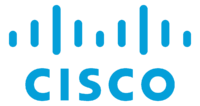|
|
This video is part of the appearance, “Cisco Presents at Tech Field Day 2“. It was recorded as part of Tech Field Day 2 at 11:30-17:30 on April 9, 2010.
Watch on YouTube
Watch on Vimeo
Cisco’s Unified Computing System (UCS) redefines the economics and operational model of data centers. It combines computing, networking, and storage infrastructure with management and virtualization in a single system to reduce total cost of ownership and increase agility. This roundtable session at Tech Field Day 2 featured a discussion of UCS technologies by leading industry experts and bloggers.
During the roundtable, participants discussed various defining attributes of Cisco UCS, including simplified management, scalability, and the utility of service profiles for hardware abstraction. These service profiles enable administrators to assign configurations and identities to blades which can be quickly swapped or moved between chassis with minimal disruption and no manual reconfiguration. This abstraction not only simplifies hardware replacement and upgrades but also facilitates operational consistency across deployments. For large enterprises, this ease of scalability and minimal intervention reduces provisioning time and administrative overhead, allowing departments to quickly deploy services without depending on multiple IT teams.
Another significant discussion focused on the secure multi-tenancy capabilities of UCS. While the term conveyed support for isolated environments for different internal business units through features like vFilers and quality of service (QoS) policies, several roundtable participants pointed out that this model does not fully address broader security concerns—particularly those involving data confidentiality and integrity across external organizations. Experts emphasized the lack of comprehensive definitions and standards in cloud and virtualization security, and although Cisco shows promise by being involved in efforts like CloudAudit and the Cloud Security Alliance, ambiguity remains. Ultimately, the consensus suggested that while UCS is a forward-thinking platform with strong potential, particularly in terms of orchestration and manageability, its security model is still evolving and may not meet every organization’s rigorous requirements just yet.
Lastly, the conversation also touched on UCS’s approach to integrating Fibre Channel over Ethernet (FCoE), offering compatibility with existing storage networks while consolidating bandwidth. This convergence potentially reduces infrastructure and overhead but still requires precise zoning and provisioning on both Fibre Channel and iSCSI. Despite its powerful features, UCS’s appeal remains dependent on customer understanding and awareness; some IT professionals noted confusion about its value proposition beyond hardware convergence, particularly in smaller enterprises. However, the collective agreement was that UCS serves as a strong foundation for modern data centers, with potential cost advantages and streamlined operations—especially when the full scope of its features and integration models are thoroughly understood and leveraged.
Personnel: Bas Raayman, Ed Saipetch, Edward Haletky, Greg Ferro, Jason Boche, John Obeto, Omar Sultan, Scott Lowe, Simon Seagrave, Stephen Foskett










